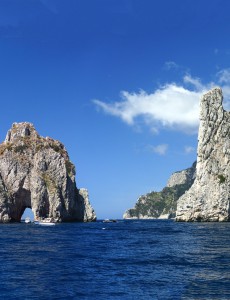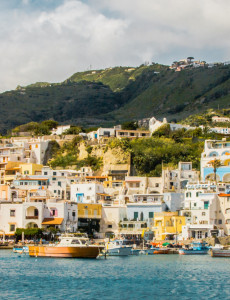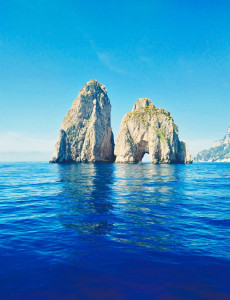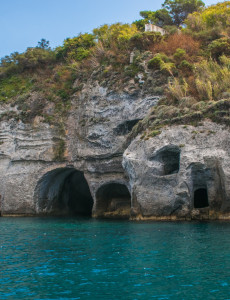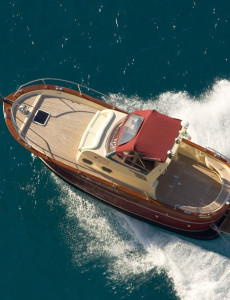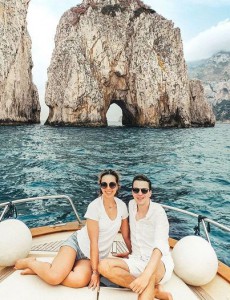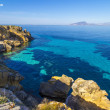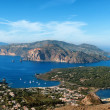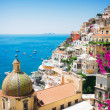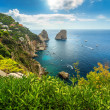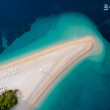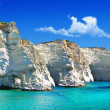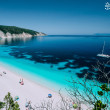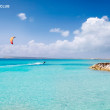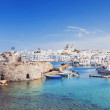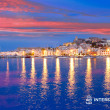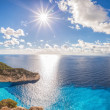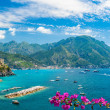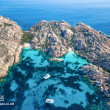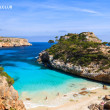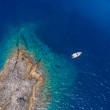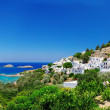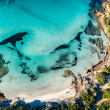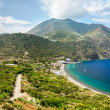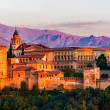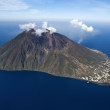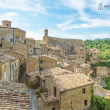
Amalfi Coast
Amalfi Coast, A Vertical Mediterranean Between Rock and Water
Approached from the sea, the Amalfi Coast reveals its true geometry. Mountains rise abruptly from deep water, villages cling to rock faces, and narrow coves appear only at the last moment. This stretch of coast in southern Italy feels carved rather than built, with every harbor and beach shaped by necessity, not convenience. The sensation of arrival is dramatic but precise, defined by scale and exposure rather than excess.
The Amalfi Coast runs along the southern edge of the Sorrentine Peninsula, between the Gulf of Naples and the open Tyrrhenian Sea. Its geography explains much of its character. Limited flat land forced settlements upward, creating vertical towns such as Positano and Ravello, where stairways replace streets and views stretch far beyond the coastline. Inland, steep valleys once supported lemon groves and small-scale agriculture, while the sea provided trade routes and defense.
Unlike island destinations, Amalfi has always been connected to the mainland, yet historically isolated by terrain. For centuries, access by water was often easier than travel by land. This shaped a maritime culture centered on navigation, shipbuilding, and commerce, particularly during the Middle Ages when Amalfi was a powerful maritime republic. Even today, the coast retains a sense of separation, where each town feels distinct despite close proximity.
Why visit the Amalfi Coast rather than another Mediterranean shoreline?
Because few places combine such density of history, landscape, and visual intensity in such a confined space. The experience is not expansive but concentrated. Every mile delivers change, and every approach by sea reveals details invisible from the road. Amalfi is not a backdrop. It is a sequence of encounters, best understood slowly.
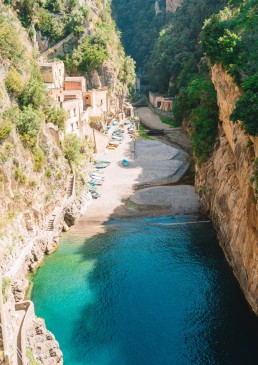
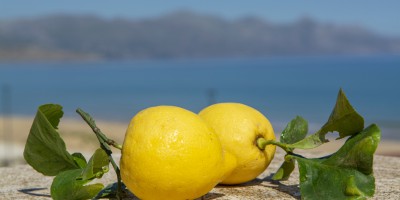
Sailing the Amalfi Coast, Short Passages and Deep-Water Edges
Sailing along the Amalfi Coast is defined by proximity and relief. Distances between towns are short, but the coastline drops quickly into deep water, allowing boats to anchor close to shore while remaining clear of land. This creates a rhythm of brief passages followed by dramatic arrivals, where cliffs and villages dominate the horizon.
Routes often begin near Sorrento, moving south toward Positano and Amalfi. The coastline here offers limited natural harbors, so sailing is structured around specific anchorages and small ports rather than continuous shelter. Positano’s bay, though exposed, allows anchoring in settled conditions, with tenders providing access to shore. Further east, Amalfi offers a more defined harbor, historically important and still active today.
Offshore, small island groups add navigational interest. The Li Galli archipelago sits just south of Positano, rising steeply from deep water and serving as both a visual landmark and a favored stop for swimming and snorkeling. Longer itineraries often include a crossing toward Capri, where the Faraglioni rocks mark the transition from coastal sailing to open water passages.
Is the Amalfi Coast good for sailing?
Yes, with the right expectations. This is not a destination for secluded bays or extended island-hopping. Winds can funnel along the cliffs, and afternoon traffic is common during peak season. Catamarans, skippered cruises, and well-planned itineraries are often preferred, especially in summer. IntersailClub typically frames Amalfi as a precision destination, where timing, anchoring knowledge, and weather awareness matter more than distance covered.
Sailing here is not about solitude. It is about perspective. From the water, the coast’s verticality and structure become clear in ways no road can reveal.
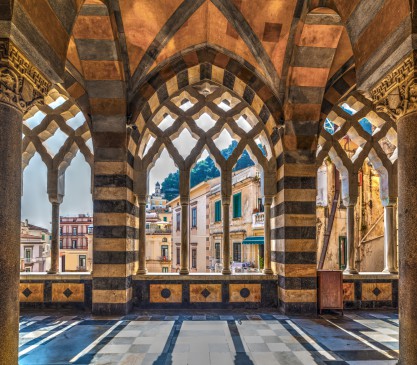
Maritime Power, Trade, and Life Along a Narrow Coast
The Amalfi Coast’s cultural identity is inseparable from its maritime past. During the Middle Ages, Amalfi was one of Italy’s great sea powers, competing with Venice and Genoa in Mediterranean trade. The Amalfi Tables, a maritime legal code developed here, influenced navigation and commerce far beyond southern Italy.
This seafaring legacy shaped daily life. Shipbuilders, sailors, and merchants connected Amalfi to North Africa, the Levant, and Byzantium, bringing wealth and ideas that filtered into architecture and customs. Churches, watchtowers, and fortified harbors still line the coast, reminders of an era when the sea was both opportunity and threat.
Inland scarcity reinforced coastal dependence. Terraced agriculture, particularly lemon cultivation, developed as a response to limited space. The iconic sfusato amalfitano lemon remains central to local cuisine, used in dishes, desserts, and the production of limoncello. Festivals and religious processions often follow maritime calendars, reflecting gratitude for protection at sea and successful harvests.
What cultural influences shape the Amalfi Coast today?
Continuity more than reinvention. Tourism has altered scale and access, but local identity remains anchored in history, food, and geography. Sailing highlights this continuity, tracing the same routes once used by traders and fishermen.
Amalfi’s culture is not abstract. It is etched into cliffs, harbors, and traditions that evolved in direct response to life on a narrow edge between land and sea.
n, and humble daily rituals — all shaped by centuries of contact between land and water, east and west.
Climate and Sailing Conditions on the Amalfi Coast
June is the hottest month in Havana with an average temperature of 27°C (81°F) and the coldest is January at 21°C (70°F) with the most daily sunshine hours at 11 in July. The wettest month is June with an average of 80mm of rain. The best month to swim in the sea is in August when the average sea temperature is 30°C (86°F).
Check all Statistics in AccuweatherAll destinations in Mediterranean Sea
-

-

-

-

-

-

-

-

-

-

-

-

-

-

-

-

-

-

-

-

-

-

-

-

-

-

-

-

-

